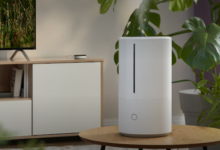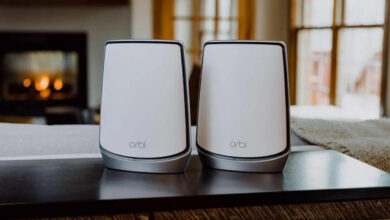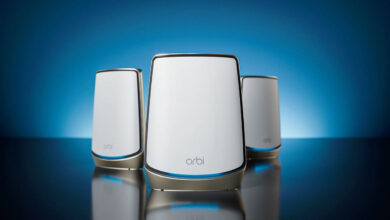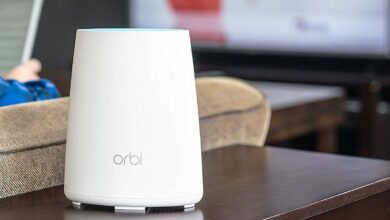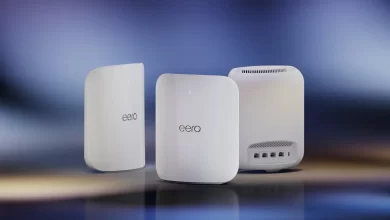Orbi vs Traditional Wi-Fi Routers: Which Is Better for Your Home?
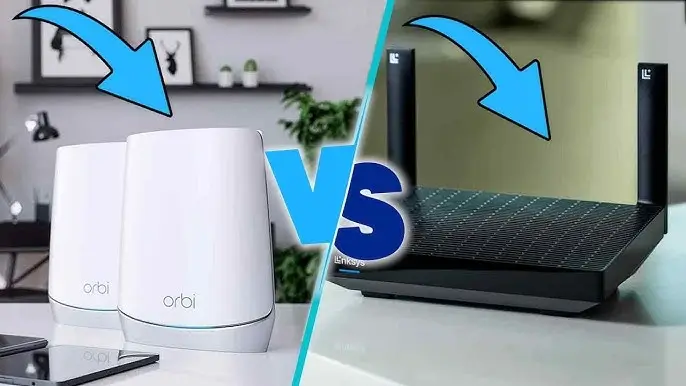
Nowadays, modern households increasingly depend on trustworthy internet connectivity. This is why the debate between Orbi vs Traditional Wi-Fi Routers has initiated acquiring momentum. Conventional routers were considered an integral standard in home networking.
But now, it has entirely been challenged by mesh systems such as – Orbi. Orbi router holds the promise of covering a wider area and performing in a top-notch way.
Don’t you know which is better for you? Are you unable to make an informed choice? If so, it is crucial for you to understand the key differences and the specific advantages of each system in detail.
Once you go through this article you will be able to explore the core distinctions, strengths, and weaknesses of both the Orbi router and traditional Wi-Fi router. This way, you can easily determine the best fit for your business.
No matter, if you give priority to cost-effectiveness, coverage, and the latest features, this guide will offer you a comprehensive overview. Let’s dig a little deeper into this post.
Understanding Traditional Wi-Fi Routers
Conventional Wi-Fi routers are truly standalone devices that are well-designed to broadcast a wireless signal from a central location. These routers have certainly been a staple for decades.
It is all because of their exclusive design and functionality. The best part is that their designs and functionalities are gradually improving with the passage of time.
Strengths of Traditional Wi-Fi Routers
— Cost-Effective Solutions:
Conventional routers are generally more pocket-friendly as compared to mesh systems such as Orbi. For users who have modest requirements, a basic router can fulfill all your networking requirements.
And the best part is that you need not to break your bank for this. Entry-level models can initiate as low as USD 30. It offers not only decent speed but also coverage for small spaces.
— Simple Setup Process:
Most of the conventional routers come with a straightforward setup process. Plug-and-play configurations and user-friendly interfaces make them more accessible to individuals with limited technical expertise. Various models now come with apps or web-based interfaces so that you can install them more conveniently.
— Sufficient for Small Homes:
For congested apartments or single-story homes, conventional routers often provide users with adequate coverage. Their centralized signal strength is generally sufficient for spaces of more than 1500 square feet.
Limitations of Traditional Wi-Fi Routers
— Signal Degradation Over Distance:
It is clear that the distance between your device and the router increases, and simultaneously the signal strength starts diminishing. It leads to slower speeds and incredible connectivity. This is applicable in larger homes or properties with thick walls.
— Dead Zones:
Conventional routers generally fail to deliver consistent coverage in all areas of the home. Dead zones for instance – basements, attics, or far corners, are not a new thing. All these things require the use of range extenders. These devices can further create complications in the way of setting up the network.
What Makes Orbi Unique?
Orbi is a mesh Wi-Fi system that was developed by Netgear. It is designed to help you address the shortcomings of conventional routers. Unlike standalone devices, Orbi creates a network utilizing multiple nodes or satellites.
Strengths of Orbi Router
— Whole-Home Coverage:
One of the standout features of Orbi is its ability to banish all dead zones. With the use of multiple nodes in a strategic manner. You don’t have an idea that these nodes are placed around the home.
Orbi confirms seamless internet connectivity in all the corners of your lovely home. It includes even the outdoor spaces too. This is surely fruitful for your multi-level homes or properties that exceed 2000 square feet.
— Consistent Performance:
Unlike conventional routers, which lose signal strength over distance, Orbi maintains consistent speeds. No matter whether you are within the network or outside the network.
The interesting thing is that the seamless handoff between nodes confirms uninterrupted streaming and gaming experiences as well.
— Advanced Features and User-Friendly Management:
The Orbi systems have the latest features. These are namely – parental controls, device prioritization, and built-in security tools. The companion app allows users to monitor as well as to control their network remotely. Ultimately, it makes it a convenient option for all tech-savvy individuals.
Limitations of Orbi Router
— Higher Price Point:
Most of the mesh systems including Orbi are more costly than the conventional routers. Entry-level models start at nearly USD 150 with top-notch options. The price range can exceed USD 400. Are you a budget-conscious user? If yes, this could be an important drawback to you.
— Complex Installation for Beginners:
However, the app simplifies the setup procedure, and the multi-node configuration can certainly be overwhelming for first-time users. Getting the exact meaning of the well-optimized node placement needs some trial & error. It might frustrate all non-technical users.
Comparing Key Features: Orbi vs Traditional Wi-Fi Routers
1. Coverage and Range
Orbi routers cover more area than the rest of the conventional routers. Undoubtedly, conventional routers are perfect for smart homes. But, the saddest part is that they face challenges while providing you with credible connectivity in larger properties.
However, Orbi’s mesh Wi-Fi technology allows all users to expand coverage. This way, they can add more nodes and enjoy better connectivity.
— Traditional Routers:
These devices are best for spaces that are under 1500 square feet. But for larger areas, there is a requirement for extenders.
— Orbi:
This networking device covers more than 5000 square feet with the base system. It also has the option to scale further.
2. Speed and Performance
When you connect multiple devices at a time, it may happen that the conventional routers experience slowdowns. You have to encounter these circumstances due to bandwidth limitations.
Orbi systems are well-optimized for the latest households with several connected devices. It ensures smooth performance across smart TVs, IoT gadgets, and gaming consoles as well.
3. Setup and Management
Conventional routers depend on an obsolete web-based interface for setup. But it can be cumbersome at some points. On the other hand, Orbi’s mobile app helps you simplify configuration. Additionally, it provides more features such as network monitoring, parental controls, and device prioritization.
4. Design and Aesthetics
Almost all conventional routers come with visible antennas and bulky designs. It may not blend properly with the latest interiors. Orbi systems feature sleek and compact designs. This may assist you in integrating it into any home decor more seamlessly.
When to Choose Traditional Wi-Fi Routers
Conventional Wi-Fi routers remain a viable option for various users. Let’s have a glance at the information given below:
— Budget-Conscious Households
Suppose, affordability is the first priority, in this scenario conventional routers offer basic connectivity. It will be entirely at a fraction of the cost of Orbi systems.
— Simple Networking Needs
For homes that have minimal devices and less internet usage, conventional routers are completely a go-to solution.
— Compact Spaces
Many apartments or single-story homes are undoubtedly the top-notch choice for all standalone routers. This is because signal degradation over distance is very little of a concern.
When to Opt for Orbi Router
A multitude of mesh systems such as – Orbi are a one-size-fit solution for households with higher demands. Now, it’s the right time to be aware of when you should prefer to opt for an Orbi router. Let’s check out the key details mentioned below:
— Large or Multi-Level Homes
The multi-node setup of the Orbi router confirms strong connectivity throughout the property. It definitely makes it the top choice for larger spaces.
— Heavy Internet Usage
For families that prefer to stream 4K content, and games, or utilize smart devices, Orbi routers offer consistent speeds and credible performance.
— Future-Proofing
The interesting thing about the Orbi systems is that they are built to help you accommodate the rising demands of smart homes. As an outcome, it will surely confirm longevity as well as adaptability.
Wrapping-up,
Ultimately, the decision between Orbi vs Traditional Wi-Fi Routers entirely relies on your specific needs. Conventional routers remain a trustworthy, budget-friendly solution for all small homes with straightforward needs. On the contrary, Orbi offers unparalleled coverage, speed, and characteristics.
This is why, it is surely a worthwhile investment for the biggest homes and tech-savvy users. Once you start calculating the size of your household, internet usage, and budget, it will be beneficial for you to determine the most suitable option.
As connectivity has become an integral part of modern living, opting for the appropriate system confirms hassle-free internet access. Later on, it will surely enhance your digital lifestyle.

